We took a bechak from Freddie’s to the island’s western horn. So steep was the road through the forested island that I had to walk alongside the bechak at one point. But after endless climbing came the freewheel descent to Iboih. The settlement comprised just a little cluster of bungalows, shops and cafes, although development was clearly in action. The slow silence was interrupted in places by the drills and saws of construction sites, from which the workers looked up, stopped their tools and yelled enthusiastic helloes at us. We had to leave the bechak and navigate Iboih on foot, clambering over steps above the shoreline to Yulia’s, a place they call the “last resort”.
Yulia’s was everything we had hoped for back at home in Belfast – a collection of detached wooden shacks overlooking the water. But initially we found it hard to be excited because we were stuck in a comparison with the luxury of Freddie’s. Here there was no communal bar, no sink or water cooler, no huge bed with fresh sheets. The bathroom was basic, although it had a shower and western-style toilet, and the bed was a pair of sponge mattresses boxed-in by a scratty mosquito net. But the balcony of our hut actually projected over the water, and the view overlooked the narrow strait between Weh and the little island of Rubiah, 100m away. With my pen-knife I skinned and sliced the pineapple we’d bought in Banda, while Maeve swung in our hammock. She cocked her head to look straight down, over the balcony into the calm, crystal water below. Right there, swimming about the beams of our hut, was an aquarium of technicoloured marine life. Pipe fish, angel fish, parrot fish, and all the others we couldn’t name. The madness of our disappointment disintegrated in the realisation that, yes, we’d done it again.
As soon as we saw Pulau Rubiah across the water from Iboih we knew we had the strength to swim the crossing. And knew we would. We set-out with our snorkelling gear as soon as we’d finished our snack. The moment our heads ducked under the surface, right under our balcony, each of us entered that strange, lonely aquatic flight. Suddenly sound is dominated by the slow, grinding in-out of your own breath. The world becomes pale and blurred. Everything drifts and sways under you as if sliding past on dysfunctional rollers. It can be stressful, trying to breath calmly, fighting to keep water out of the mask and airway, swimming through shallows without catching yourself on the ragged, precious coral, or battling against currents. But after a while you resign to the slowness of that other world and it calms you into sedation. Then, never when you expect it, some grand sea creature slides into view.
When the fish-riddled coral turned to dark depths, we lifted our masks onto our foreheads, spat out our snorkels and began the steady haul across the strait. We had to aim about 40 degrees off-target to maintain a straight line against the current. Progress was intangibly slow but eventually we saw sand underneath us once more. On the other side, at Rubiah, we had hoped for the “sea garden” we had read about but it seemed no richer than any other coral areas we’d visited before. We relaxed into a long, slow swim against the current, following the shoreline to a cluster of huts we’d seen from the other side. Just before the huts we reached a group of huge, brain-like corals. Up close they were full of electric-coloured clams that gaped open before snapping their lips shut. The sea suddenly came alive and we were engulfed by thousands of small fish of many species. Some dark ones in particular came right up to us and huddled close for protection. Others grouped together to make the forms of large fish. For a few minutes we felt part of their busy world, not just external observers, before we turned, lifted our masks and began the slog home.
We slaked our hunger at one of the cafes in what could be referred to as the centre of Iboih. We ate fresh fish, drank fresh juices and finally sampled the legendary Luwak coffee, picked from the faeces of the civet cat, in the jungle not far from where we had been trekking a few days earlier. A group of boys were engaged in a fierce game of marbles in the schoolyard on one side of us, and on the other side a cockerel and some hens strutted about in a small playground. Women chatted and laughed. Scooters and bechaks occasionally gurgled past, dropping and lifting people on errands that didn’t seem to be urgent. Fresh catches of wahoo and grouper were carried in on scooters, their heads and tails flapping over the sides. We spoke softly, about nothing of consequence, and sporadically swatted flies away. It was comfortably warm, with the sun creeping in and out of the gaps between a few small clouds. The water, just a few metres away, shimmered lazily in the still air. I felt connected with that moment and place, far from home and closer to myself.
After swimming we attempted a walk into the forest park behind Iboih. We took about twenty paces in the midday sun and ditched that idea. It took moments for us to find someone to order a scooter for us and almost immediately we were motoring up the road with our own set of wheels. It was a wise choice. It was eight kilometres of steep road to the lookout point at the end of the forest, “Kilometre Zero”, the official start and end point of Indonesia. The start of the country was marked by a dishevelled monument and a couple of cafes where tourists come to throw food to the macaques that abound there and have hence become greedy and aggressive. We vaulted the safety rail and sat on a rock overlooking the cliffs. The sea frothed and whirled far beneath us, and rose up to merge with the distant horizon. We felt some poignance at peering off the edge of the country we had come to explore, just hours before we would leave it for home.
On returning to Iboih, before our sunset date with our new friends from the dive group, we took one last plunge. And it was the best yet. We set out from Yulia’s, at the northernmost huts and followed the rocky shore to a corner that’s known for turtle-spotting. Although we never saw a turtle we were instantly treated to countless fish, darting ahead of us and schooling together. More comfortable in the water than ever before, we flew over frilly corals that towered up from the sea floor. Some had collapsed, resembling tower blocks in some ruined city. We chatted in muffled voices through our snorkels, held each other’s hands and took turns to dive down and skim the seabed. No currents or sharp corals could challenge us, we were attuned to the water at last, it felt like a new home.
We stepped out of the water just as the sky turned pink one last time. The flying foxes took the sky above us again. Our friends appeared and we settled into a night of eating and sharing travel stories. The alarm then woke us at 06:00 just before dawn broke opposite our balcony. Sunrises are a special traveller’s treat and this was to be an unexpected extra to add to our memories. A cover of dabbled clouds ignited red as the sun broke through, painting the still waters and waking the daily chorus of birds and insects. The dawn bloomed like a beacon to signal the long haul we had ahead of us.
It went like this… taxi to the south of Pulau Weh, ferry to Banda Aceh in Sumatra, taxi to the airport outside the city, a short plane ride over to Kuala Lumpur in Malaysia; taxi then to the main train station in the city centre, to put our bags in lockers before taking the elevated monorail to the nightlife area of Bukit Bintang. Pause…
It was coming into Friday evening and we had several hours to explore downtown Kuala Lumpur before the next flight. We agreed to indulge ourselves. Under Chinese lanterns at Jalan Alor we ate prawns, snails and mango-chilli chicken, with drinks of sour plum juice and chrysanthemum tea. We drank coffee in a modern café before going to the 33rd floor of Traders hotel for cocktails, looking out at the Petronas Towers as the sun set on the city and the lights were switched on. We toured the busy malls and streets, amidst faces and accents from all over the world. Burkas, gays, businesspeople, backpackers, rich old Brits with dolled-up Asian girls. Kuala Lumpur felt like a city we could live in, with a real heart. But still the nightlife was a little false and amateur. The bars we visited were cheesy contrivances of western themes and got pestered every few moments by people peddling laser pens, woodcraft, and by groups of disabled buskers howling songs for money.
Maeve finally found the mangosteen fruit she had been hunting all month, so she ate through the majority of a kilo bag of them. I insisted too that we must at last try durian, of which we heard so much. Supposedly it smells terrible but tastes great. Yes, it smelled bad, with a kind of apple-like sweetness ruined by a scent of rotting meat. But it tasted so much worse. And after we had previously laughed at the sight of people eating with plastic bags on their hands, we then found out why. From just one mouthful, I could still smell the wretched fruit on my fingers and taste it rising in my throat a day later. We washed away the thought of it with drinks in one of the bars before going in for a second round of dinner. We ordered three dishes in small portions but they all arrived in large dishes. Noodles and rice with egg, chicken and bullfrog. We were utterly stuffed when we had to rush away and pound the street to catch the last monorail to the train station and connect with the last airport train, departing at 00:30.

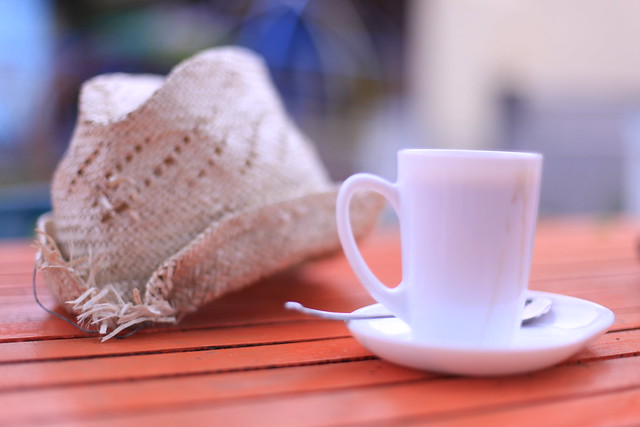
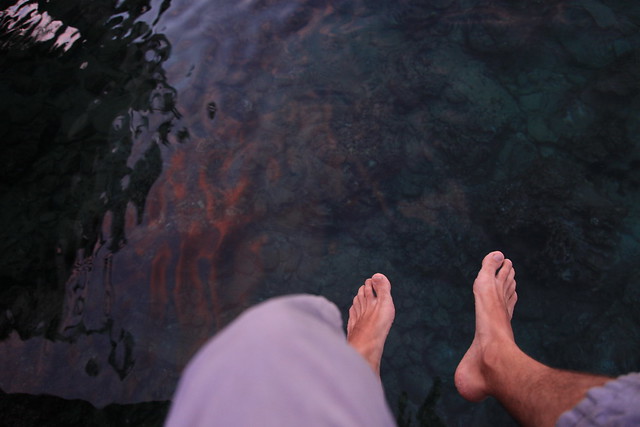
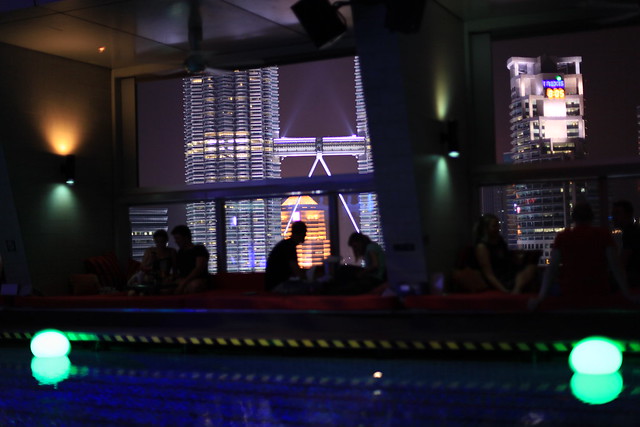
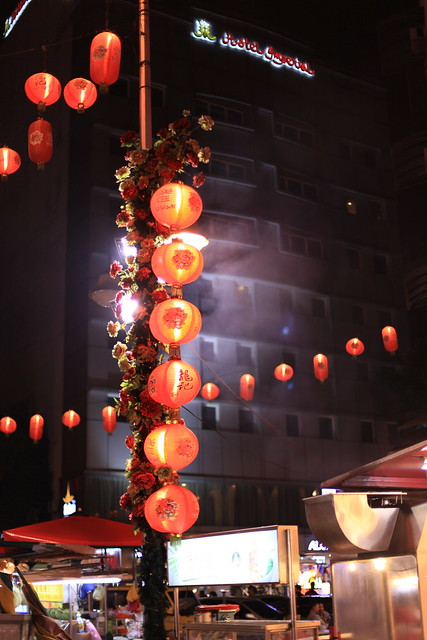
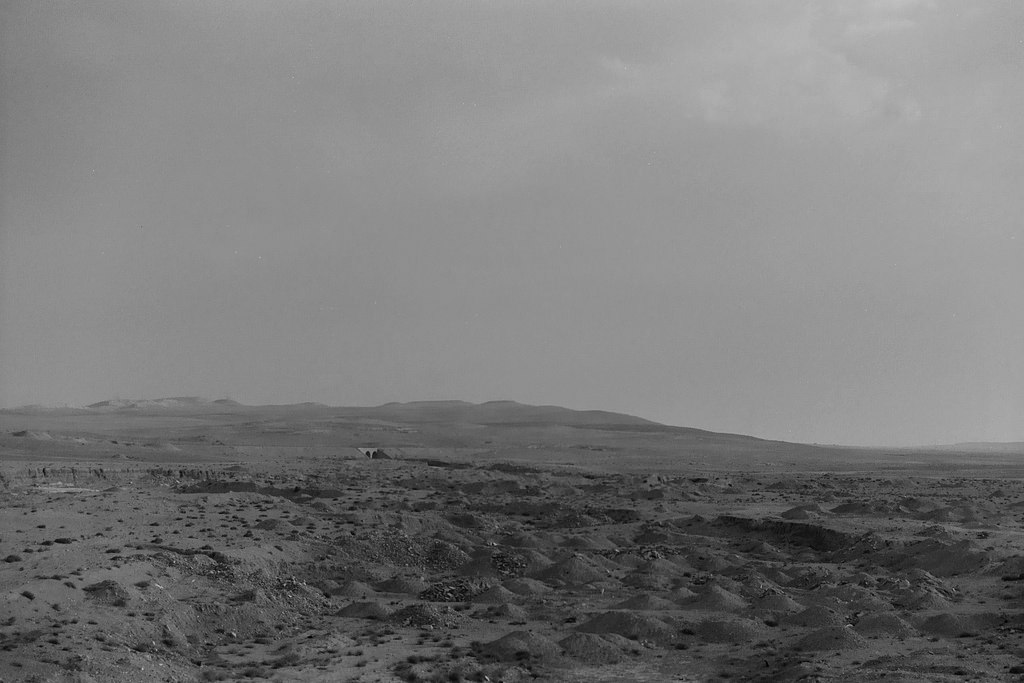


Leave A Comment